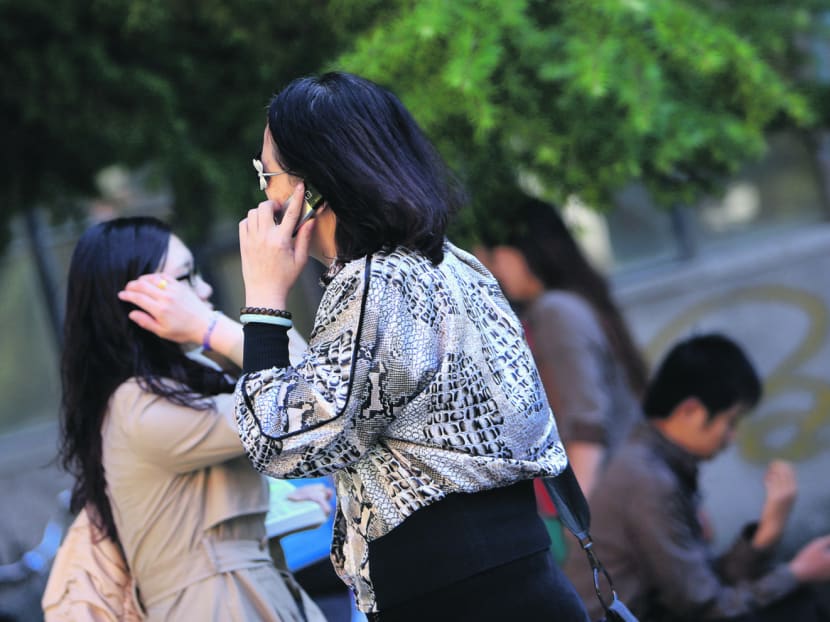Singapore closer to launching 5G mobile networks: IMDA
SINGAPORE — The Republic is another step closer to seeing 5G networks being deployed here, with the Info-communications Media Development Authority (IMDA) announcing yesterday that it will launch a public consultation later this year on mobile technology developments related to 5G and the spectrum required for it.

Bloomberg file photo
SINGAPORE — The Republic is another step closer to seeing 5G networks being deployed here, with the Info-communications Media Development Authority (IMDA) announcing yesterday that it will launch a public consultation later this year on mobile technology developments related to 5G and the spectrum required for it.
At the Next Generation Mobile Networks Forum, organised by Singtel, IMDA assistant chief executive Aileen Chia noted that it is anticipated that 5G will support a larger range of applications, meeting requirements from “high reliability and high bandwidth applications, to ultra-low latency and mobility”. Potential applications tapping 5G technologies include autonomous vehicles, which require a very low latency rate so that they can communicate almost instantaneously to avoid collisions, for example. Another application is in robotic arms to perform remote surgery.
Hence, there is a need for new spectrum resources to fuel the next generation of mobile services, she said.
“IMDA will continue to promote greater technological innovation by encouraging trials in 5G technology to explore its potential benefits and applications.
“Such trials, when conducted in a real-world environment, will assist the industry in better understanding how 5G will work in Singapore’s business environment and its optimum deployment scenarios,” said Ms Chia.
The telco industry largely expects 5G mobile services to be commercially launched in 2020, and a variety of trials are being undertaken now.
Huawei, for instance, has started trials with telcos in Japan, Australia and Germany last year. It found that latency — which measures how long it takes for data to travel between its source and destination — was cut to one millisecond with 5G, as compared with 4G’s 20 to 40 milliseconds. The latter latency is not suitable for driverless cars as it meant they could not communicate with each other fast enough, according to Huawei.
In Singapore, Singtel is working with some industry partners to start trials this year, for some potential applications using 5G. This could include fleet management in the transport and logistics space. Late last year, StarHub did a trial with Nokia, and found that 5G speeds were “tens of times superior to typical 4G networks today” — delivering mobile broadband with an ultra-high speed of 4.3 Gigabits per second and latency of just one millisecond. TAN WEIZHEN






